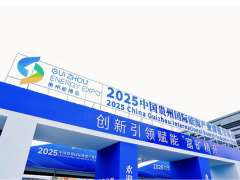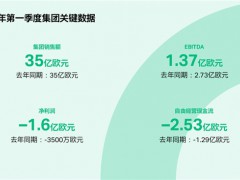據(jù)油價網(wǎng)2023年4月11日報道,根據(jù)彭博新聞社日前看到的一份會議公報草案,由全球工業(yè)化程度最高的7個國家組成的七國集團正努力在本周晚些時候在日本舉行峰會之前,就到2030年前逐步淘汰煤炭發(fā)電計劃達成共識。
在這些文件草案中,美國、日本和歐盟表示,他們對英國提出的一項建議持保留態(tài)度:這項提議是在4月15日和16日舉行的七國集團能源和氣候變化部長峰會上,為停止燃煤發(fā)電設(shè)定一個明確的2030年最后期限。
據(jù)彭博新聞社報道,德國對英國提議中的明確時間表給出了替代方案,口耳相傳的草案是“理想情況下在2030年前”或“在21世紀30年代”逐步淘汰煤炭發(fā)電。
此次七國集團峰會東道主日本是一個資源貧乏的發(fā)達經(jīng)濟體,依賴化石燃料進口滿足其能源需求。日本建議七國集團重申去年的承諾,即“到2035年前實現(xiàn)電力行業(yè)完全或絕大多數(shù)脫碳”。
去年,七國集團氣候、能源和環(huán)境部長在5月舉行的一次會議后表示,“我們進一步承諾到2035年前實現(xiàn)電力行業(yè)絕大多數(shù)脫碳的目標,根據(jù)我們2030年的氣候自主貢獻目標,我們的電力行業(yè)轉(zhuǎn)型承諾和我們各自的凈零承諾,優(yōu)先采取具體和及時的步驟,最終逐步淘汰國內(nèi)不受抑制的煤炭發(fā)電。”
一個月后,七國集團國家元首和政府首腦在2022年6月表示,“承諾到2035年前實現(xiàn)電力行業(yè)完全或絕大多數(shù)脫碳”。
七國集團領(lǐng)導(dǎo)人2022年表示:“認識到煤炭發(fā)電是全球氣溫上升的最大單一原因,我們承諾優(yōu)先采取具體及時的步驟,以實現(xiàn)加快淘汰國內(nèi)不受抑制的煤炭發(fā)電的目標。”但沒有給出明確的時間表。
據(jù)報道,在本周七國集團日本峰會召開之前,七國集團未再提及氣候問題,表示還將考慮批準對天然氣進行新的上游投資。
李峻 編譯自 油價網(wǎng)
原文如下:
G7 Nations Diverge On Plan To Phase Out Coal Power By 2030
The G7 group of the world’s most industrialized nations is struggling to find common ground on committing to phasing out coal power generation by 2030 ahead of a summit in Japan later this week, according to a draft communique for the meeting seen by Bloomberg News.
In those draft documents, the United States, Japan, and the European Union have said they have reservations about a proposal by the UK to set a firm 2030 deadline to end unabated coal-fired power generation when the G7 energy and climate change ministers meet at a summit on April 15 and 16.
Germany has reportedly offered alternative wording to the firm timeline proposed by the UK, with drafts being circulated mentioning coal phase-out “ideally by 2030” or “in the 2030s,” according to Bloomberg.
The summit host Japan, a resource-poor developed economy dependent on fossil fuel imports for its energy demand, has suggested that the G7 reiterate a commitment from last year to achieve “a fully or predominantly decarbonized power sector by 2035.”
Last year, the G7 Climate, Energy and Environment Ministers said after a meeting in May that “we further commit to a goal of achieving predominantly decarbonised electricity sectors by 2035, prioritising, consistent with our 2030 NDCs, our power sector transition commitments and our respective net zero commitments, concrete and timely steps towards the goal of an eventual phase-out of domestic unabated coal power generation.”
A month later, the G7 Heads of State and Government said in June they “commit to achieving a fully or predominantly decarbonized power sector by 2035.”
“Recognizing that coal power generation is the single biggest cause of global temperature increase, we commit to prioritizing concrete and timely steps towards the goal of accelerating phase-out of domestic unabated coal power generation,” the G7 leaders said last year without giving a timeline for the phase-out.
Ahead of the summit in Japan this week, the G7 nations are also reportedly considering endorsing new upstream investment in natural gas despite climate concerns.
免責(zé)聲明:本網(wǎng)轉(zhuǎn)載自其它媒體的文章及圖片,目的在于弘揚石化精神,傳遞更多石化信息,宣傳國家石化產(chǎn)業(yè)政策,展示國家石化產(chǎn)業(yè)形象,參與國際石化產(chǎn)業(yè)輿論競爭,提高國際石化產(chǎn)業(yè)話語權(quán),并不代表本網(wǎng)贊同其觀點和對其真實性負責(zé),在此我們謹向原作者和原媒體致以崇高敬意。如果您認為本站文章及圖片侵犯了您的版權(quán),請與我們聯(lián)系,我們將第一時間刪除。







